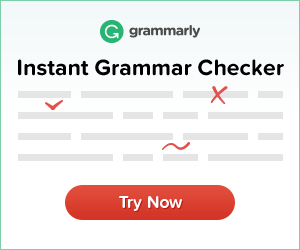Whenever I meet someone new, the social contract kicks in and someone inevitably asks, “So, what do you do for a living?” Or some equally trite equivalent. I have a lot of options — teaching, editing, writing, and a few others from time to time — but I usually tick the box as “writer.” This impresses people. They ask what I write, which I answer. Then they ask if I’ve been published, which I also answer.
“I’m self-published.”
At which point the light goes out of their eyes a little bit. The other person often makes a polite noise and changes the subject. That polite noise can be most easily translated into, “Oh, so it’s not good enough to get traditionally published? That’s too bad.” Even in the digital age — or perhaps because of it — self-publishing is still looked down upon.
Now, we should take a quick detour down Nomenclature Lane here… I rarely use the term “self-publishing.” I prefer “independent publishing.” It sounds better, and it more accurately represents the vast number of people choosing that path. I also stay away from “traditional publishing” or “legacy publishing,” because I think they are overly grandiose. I’ve come across the term “corporate publishing,” and that’s the one I use. It accurately describes putting one’s work into a corporate system, though size of the corporation would depend on the publishing house.
So I’ve chosen independent publishing for a number of reasons. Not one of them is because I don’t like corporate publishing. I certainly wouldn’t look down on anyone who has a book contract with a publisher, regardless of the size. Publishing companies put a great deal of resources at the authors’ disposal. There are editors, cover designers, publicists, and proofreaders. It’s a small army of support staff. Corporate publishers are better connected to bookstores and libraries. Corporate publishers pay an advance.
So why haven’t I gone this route?
- I’m impatient. The publishing process is long and arduous. Finishing a book is one thing. It takes months — in some cases years — just to finish a book. Then it takes even more months — usually years — for that book to be even looked at. It may or may not be bought. Independent publishing skips the last part.
- I’m in control. With my own books, I get to be in complete control. I choose what channels through which to sell them. I choose when they are ready, or when they still need work. There is no need for gatekeepers. I choose how much the book sells for, which also means it’s up to me how much money I make. I choose… everything.
- Better Royalties. If an author hits the sweet spot pricing their book on Amazon Kindle Direct Publishing, they get a 70% royalty on every ebook sold. Smashwords offers 80%. Corporate publishers, on the other hand, offer 25% or less. Yes, they do offer an advance, but even that is moot now after the creation of crowdfunding and Kindle Scout. So I’d rather take more money out of each book than bet that I’ll eventually make the advance back.
- I’m international. This is a big reason why I choose to independently publish. I live in a non-English speaking country. (Taiwan, in case you’re wondering.) There are very few opportunities for a more literary writer here, and I’m not nearly successful enough to be flying internationally to meet with agents, publishers, and whoever else. So barring moving to L.A., New York, or London, it’s way easier for me to just do my own thing from here. It’s way faster to do over the Internet, and I don’t have to pay L.A., New York, or London prices.
- The industry is shifting towards independent publishing. A growing number of corporate publishers are realizing something: it’s way better for the bottom line to recruit a successful indie author than to build up a name from scratch. Independent publishing is become less of a hobby and more of an audition. It does mean that new authors have a harder time breaking into corporate publishing, but when it’s so easy to self-publish, why is that a problem?
- Low cost of entry. Getting into independent publishing is cheap. At the very lowest end of the spectrum, it costs only one’s writing work. To reach the higher echelons of success, there are other costs involved — editing, cover design, promotion, advertising, and so on — but putting together a book has never been cheaper. Ebooks and print-on-demand services make it easy to distribute one’s books, often at no cost to the author until a book is actually bought. Moreover, many of the costs of producing a good book apply equally to independent and corporate authors. It’s not that much more expensive to just finish off a book and do it oneself.
So there you have it: the reasons why I choose to stress myself out and wear so many hats. There are others that are less discrete than these six, but they should give people the gist of it. I’m an independent author, and I’m proud of that fact, though I’m not so proud I wouldn’t happily sign a book contract with a corporate publisher. If the terms were right.

 I'm a writer, editor, nerd, and foul-mouthed cheerleader of creative people everywhere. When not trying to force words to do my bidding, I'm a husband and father.
I'm a writer, editor, nerd, and foul-mouthed cheerleader of creative people everywhere. When not trying to force words to do my bidding, I'm a husband and father. 









